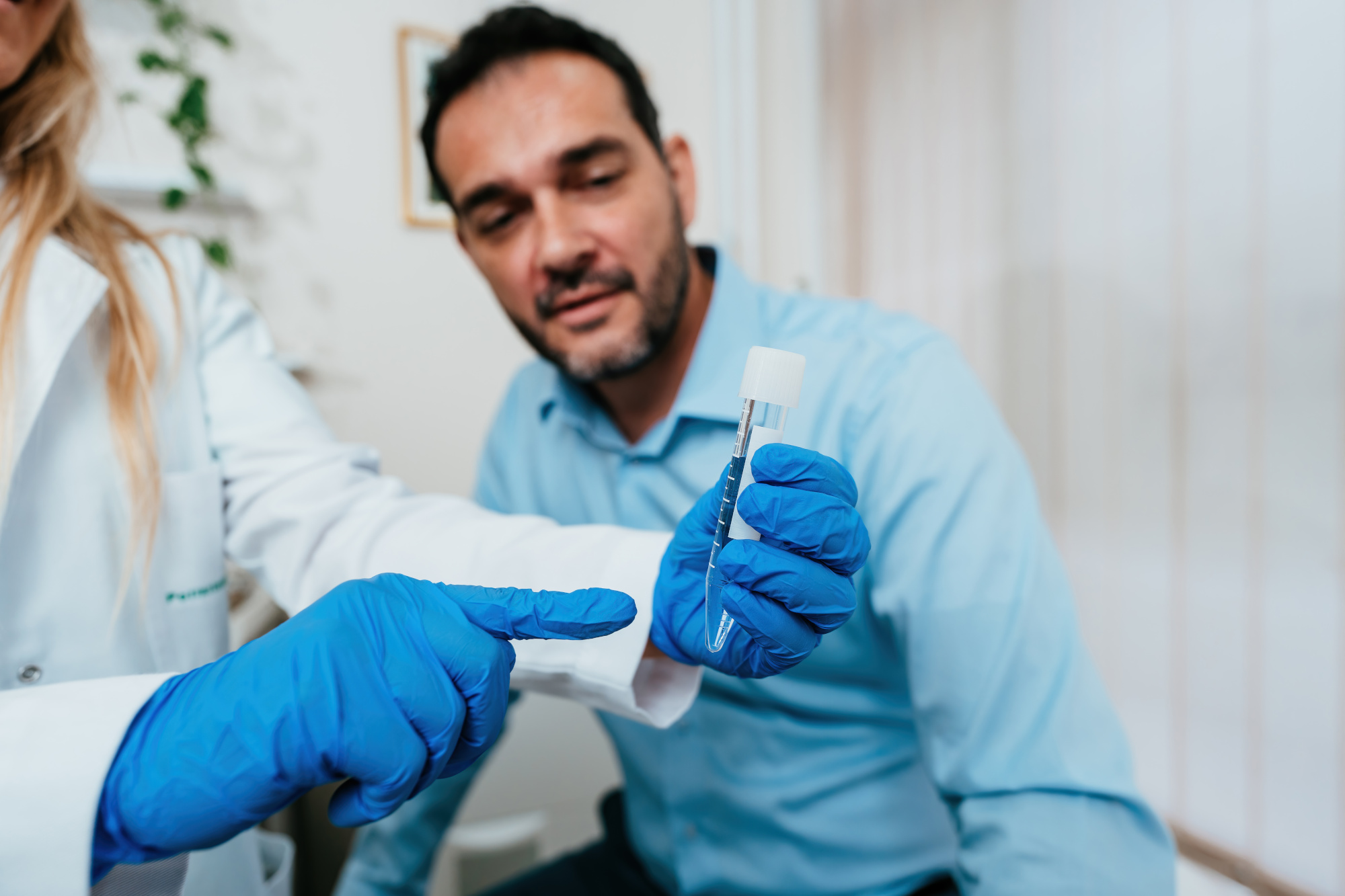Fertility & IVF Consulting: Empowering Your Parenthood Journey
There is nothing more exciting than preparing the way for a new baby. But if you’re like 1 in 8 couples in the U.S. who struggle with infertility, this anticipatory joy could turn into frustration. Thankfully, there are options for couples wanting to fulfill their dream of starting a family. But who can you trust? How do you get the most current and accurate information about in vitro fertilization (IVF)? Your best option is to get IVF consulting from an expert in this complex field of reproductive health. If you and your partner are beset with fertility challenges and not sure where to turn, consider Avena Natural Health. We are at the forefront of fertility consulting, and our natural, knowledgeable approach can make all the difference in your quest to welcome a new bundle of joy into the world.
What is IVF?

IVF stands for in vitro fertilization. It is a procedure used to help individuals or couples with fertility problems conceive a child. The IVF procedure involves extracting eggs from a woman’s ovaries and then fertilizing them with sperm in a laboratory dish. The fertilized eggs, or embryos, are then cultured for a few days before one or more are transferred to the woman’s uterus. IVF may involve the use of the individual’s own eggs and sperm, or donor eggs, sperm, or embryos may be used. It’s a widely used assisted reproductive technology that has been integral in aiding millions of couples worldwide to overcome infertility and build their families.
Tips to Increase Your Chances of Successful IVF
- Choose a Reputable Clinic: Research and select a reputable IVF clinic with experienced fertility specialists and a high success rate.
- Optimize Health: Prioritize a healthy lifestyle. Maintain a balanced diet, get regular exercise, and manage stress to optimize fertility potential.
- Follow Medication Protocols: Adhere to medication protocols prescribed by your fertility specialist to stimulate egg production and prepare the uterus for embryo transfer.
- Monitor Hormone Levels: Regularly monitor hormone levels through blood tests and ultrasounds to ensure optimal response to fertility medications.
- Consider Preimplantation Genetic Testing (PGT): PGT can identify chromosomal abnormalities in embryos before transfer, increasing the chances of implantation and a successful pregnancy.
- Maintain Open Communication: Communicate openly with your fertility consultant and discuss any concerns or questions throughout the IVF process.
- Consider Lifestyle Changes: Avoid smoking, excessive alcohol consumption, and exposure to environmental toxins, which can negatively impact fertility and IVF success rates.
- Emotional Support: Gain stability and encouragement from a strong trusted group of friends and family members. Consider joining a support group geared toward couples going through IVF. Having a foundation of support means a lot during the potential emotional ups and downs of the IVF process, which can positively impact overall well-being and success rates.
Best Fertility Diet
The best fertility diet is one that prioritizes whole, nutrient-rich foods while minimizing processed and sugary foods. A diet supercharged with fruits, veggies, whole grains, lean protein, and healthy fats (monounsaturated and polyunsaturated fats) will provide essential vitamins, minerals, and antioxidants that support reproductive health.
Consider introducing foods high in folate, such as leafy greens and legumes, which can aid in ovulation and fetal development. Also, think about adding Omega-3 fatty acids found in fish, nuts, and seeds to your diet, as this may improve egg quality and sperm health.
Drinking ample water is also a good idea. Do your best to limit caffeine and alcohol, as excessive consumption can negatively impact fertility. Additionally, talk to your fertility expert for customized dietary tips for optimal outcomes.
Different Fertility Options
- Intrauterine Insemination (IUI): This option involves directly placing the sperm into the uterus during the ovulation cycle to increase the chances of fertilization.
- In vitro Fertilization (IVF): Eggs are extracted from ovaries and fertilized with sperm externally in an ideal laboratory environment. Once fertilized, the resulting embryos are transferred directly into the uterus.
- Intracytoplasmic Sperm Injection (ICSI): This process entails taking a single spermatozoon and injecting it into an egg to encourage fertilization. Sometimes this option is used in tandem with IVF.
- Egg Donation: In this scenario, a donor provides eggs that are fertilized in vitro. The resulting embryos are then transferred to the recipient’s uterus.
- Sperm Donation: Sperm from a donor is used to fertilize a woman’s eggs, either through IUI or IVF.
- Surrogacy: A surrogate carries a pregnancy for the intended parents, either using their own egg and sperm or donor gametes.
- Fertility Medications: Hormonal medications are used to stimulate ovulation or increase sperm production in individuals with fertility issues.
- LGBTQ+ Family Building Options: These options may include reciprocal IVF for lesbian couples. For instance, one partner provides the eggs, while the other companion carries the pregnancy to term.


How To Get Off Birth Control
If you’ve been on birth control, clearly it’s time to stop taking it if you wish to conceive. Talk to an Avena Natural Health provider, or consult with your OBGYN to determine the best way to get off birth control The reason being, is that hormones will fluctuate for a time after discontinuing contraception.
Typically, for hormonal birth control methods like the pill, patch, or ring, stopping is as simple as discontinuing use. You might experience irregular periods for a few months as the body adjusts. For long-acting reversible contraceptives (LARCs) like implants or IUDs, removal should be done by a healthcare professional. After discontinuing birth control, fertility may return immediately for some, while for others, it may take a few cycles.
How to Improve Chances of Conceiving Naturally
- Track Ovulation: Monitor menstrual cycles and use ovulation predictor kits to identify the most fertile days.
- Maintain a Healthy Lifestyle: Eat a balanced diet, exercise regularly, manage stress, and avoid smoking and excessive alcohol consumption.
- Maintain a Healthy Weight: Every case is different, but being either overweight or underweight may affect fertility, so aim for a healthy BMI.
- Have Regular, Timed Intercourse: Aim to have sex every 2-3 days around the time of ovulation to maximize chances of conception.
- Limit Caffeine and Environmental Toxins: High caffeine intake and exposure to certain chemicals may impact fertility, so minimize exposure.
- Address Medical Conditions: Treat underlying medical conditions such as polycystic ovary syndrome (PCOS) or thyroid disorders that may affect fertility.
- Avoid Lubricants: Some lubricants can interfere with sperm motility, so use fertility-friendly lubricants or none at all.
- Seek Medical Advice: If you are unsuccessful after one year of trying (or six months if you are over 35), talk to your healthcare professional for an evaluation and guidance.
Hormone Treatment: Pre, During & Post Pregnancy

Pre-Pregnancy:
Before conception, hormone treatments address fertility issues. Medications regulate ovulation, like clomiphene citrate or letrozole for irregular cycles, or gonadotropins to increase sperm production in men.
During Pregnancy:
Pregnancy involves natural hormone fluctuations, but treatments may support it. Progesterone supplements prevent preterm birth or miscarriage. Complications like gestational diabetes are managed with careful hormone monitoring and intervention.
Post Pregnancy:
After childbirth, hormones shift during recovery and lactation. Treatments can address postpartum depression linked to hormonal changes. Hormone therapy may resume for those seeking another pregnancy or for cycle regulation. If not breastfeeding, birth control pills may be prescribed. Hormone treatments are personalized for reproductive health and well-being.
Detox Programs Before Getting Pregnant
Before pregnancy, individuals may opt for various detox programs to enhance their health. These programs commonly include dietary modifications, emphasizing whole foods rich in nutrients while eliminating processed foods, alcohol, and caffeine. Some choose juice cleanses, consuming only fruit and vegetable juices for a period to flush out toxins. Others prefer herbal detox teas or supplements designed to support liver function and eliminate toxins. Physical activities like yoga or sweating through exercise can aid in toxin removal. Mental detox strategies such as meditation and mindfulness may also be incorporated to reduce stress.
Undergoing any or all of these pre and post hormone steps should always be done under the supervision of your doctor or IVF consulting team.
Benefits of a Fertility Consultant
Fertility consulting offers invaluable expertise and support when navigating the complex journey of conception. With specialized knowledge in reproductive medicine, the caring pros at Avena Natural Health can provide personalized guidance, tailored treatment plans, and emotional support.
Our personalized IVF consulting services include conducting thorough assessments to identify underlying fertility issues, coordinating diagnostic tests and treatments, and advocating for patients’ needs within the healthcare system.
Beyond medical expertise and holistic care, Avena’s fertility consulting team offers compassionate guidance through the emotional challenges of infertility, empowering patients to make informed decisions and navigate the often overwhelming process with confidence and resilience.

Why Choose Avena Natural Health for Your Fertility Journey
From preconception to postpartum care, choosing an IVF consultant can make all the difference in every aspect of your odyssey of bringing new life into the world. Our compassionate, holistic approach combines evidence-based treatments with natural therapies, ensuring comprehensive support for your reproductive health. We guide you through every step of your fertility progress, empowering you to achieve your dream of starting or expanding your family.
Frequently Asked Questions About Fertility & IVF
How do most people afford IVF?
Most people afford IVF through a combination of personal savings, health insurance coverage (if available), loans, and sometimes financial assistance programs offered by fertility clinics or organizations.
What is an infertility consultant?
An infertility consultant is a specialized healthcare professional who helps individuals or couples navigate the complexities of infertility, providing guidance on treatment options, emotional support, and resources.
What is a fertility advisor?
A fertility advisor typically offers personalized advice and support regarding fertility-related decisions, such as choosing the right fertility clinic or treatment plan, based on an individual or couple’s specific needs and circumstances.
How long does IVF take?
Of course, every instance is different – but generally speaking, IVF can take about four to six weeks from the beginning of ovarian stimulation to embryo transfer, with additional time needed for preparatory tests and procedures.
How can a woman boost her fertility?
Be mindful of your body and do your best to achieve optimal health to pave the way for your baby. Maintain an ultra-healthy lifestyle. Get enough exercise, reduce your stress, and stay clear from negative influences such as smoking, drinking too much alcohol or taking recreational drugs. Keep talking to your fertility specialist for ongoing tips and supervision.
What age are you fertile?
Every woman is different, but in general, the female fertile window typically spans from her teenage years until her early 40s, with peak fertility occurring in her 20s and gradually declining thereafter.






